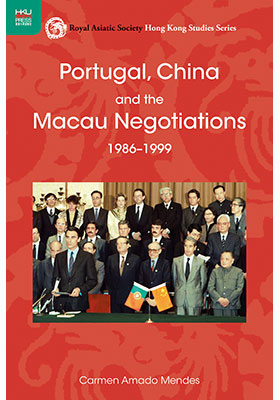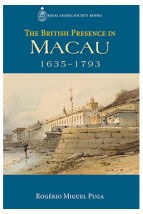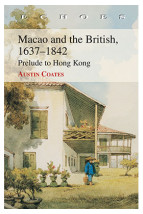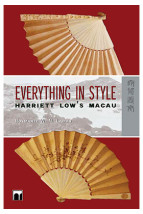Portugal, China and the Macau Negotiations, 1986–1999
(葡萄牙、中國和澳門問題的談判,1986–1999)
ISBN : 978-988-8139-00-2
Royal Asiatic Society Hong Kong Studies Series (皇家亞洲學會香港研究叢書)
May 2013
172 pages, 6″ x 9″, 2 b&w illus.
- HK$275.00
Ebooks
On 20 December 1999 the city of Macau became a Special Administrative Region of China after nearly 450 years of Portuguese administration. Drawing extensively on Portuguese and other sources, and on interviews with key participants, this book examines the strategies and policies adopted by the Portuguese government during the negotiations. The study sets these events in the larger context of Portugal’s retreat from empire, the British experience with Hong Kong, and changing social and political conditions within Macau. A weak player on the international stage, Portugal was still able to obtain concessions during the negotiations, notably in the timing of the retrocession and continuing Portuguese nationality arrangements for some Macau citizens. Yet the tendency of Portuguese leaders to use the Macau question as a tool in their domestic political agendas hampered their ability to develop an effective strategy and left China with the freedom to control the process of negotiation.
The first sustained analysis of the Macau negotiations from the Portuguese perspective, this book will be of interest to historians, diplomats, and students of international relations.
“Setting Portugal’s approach to the Macau question in the context of broader domestic and international political dilemmas, Mendes provides a nuanced picture of the institutional inertias, party rivalries, and post-colonial exhaustion that shaped the entire negotiation process. She shows, paradoxically, that although these factors weakened Portugal’s position relative to China, this weakness sometimes put Portugal in the driver’s seat at the negotiating table.” —Cathryn Clayton, author of Sovereignty at the Edge: Macau and the Question of Chineseness
“Portugal, China and the Macau Negotiations is not only a very valuable insight into the negotiations on the future of Macau but also a useful guide to understanding the larger relationship between Portugal and China.” —António Costa Lobo, Portuguese Ambassador to China, 1982–1985
“Carmen Mendes gives us a clear and balanced historical account of the Macau negotiations. We are told that ‘history is an argument without end’, but this is the first book written not by an actor in the events but by an independent academic observer. This important book will help considerably in our understanding of China-Portugal relations.” —Jose Duarte de Jesus, Portuguese Ambassador to China, 1993–1997
“Mendes presents the nuances of the ‘Macau question,’ issues on the negotiation table, the strategies of the Portuguese and the Chinese negotiators, and an evaluation of those strategies. Considering the scarcity of literature on the Sino-Portuguese negotiations, this book makes a valuable contribution to the field.” —Zhidong Hao, University of Macau
“The book contributes to our deeper understanding of the internal dynamics of the Sino-Portuguese negotiations from 1986 to 1999 from the perspectives of the Portuguese. It will continue to be an indispensable study of Macao’s historical development and Portugal’s final years in its last colony in Asia.” —Sonny Lo, Journal of the Royal Asiatic Society Hong Kong Branch







